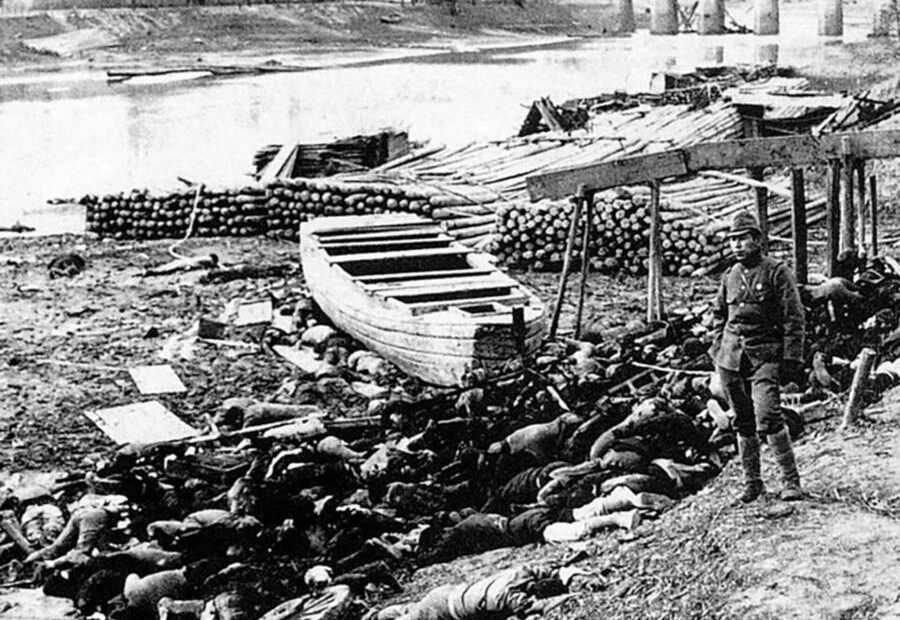Experts estimate that during World War II’s Pacific Theater, at least 25 million lives were lost. One of the most shocking aspects of this dark chapter was the brutal treatment of Chinese civilians at the hands of the Imperial Japanese Army. While many historical narratives tend to focus on Europe and the atrocities committed by the Nazis, it is crucial to shed light on the equally atrocious war crimes committed by the Japanese.
The Infamous Rape of Nanking
In the Pacific Theater, the Imperial Army of Japan brought terror wherever it went. Nowhere was this more evident than in the city of Nanking. In the summer of 1937, Japan launched a large-scale invasion of China. After capturing cities like Shanghai, the Japanese turned their attention to Nanking, which was the capital at the time.
In December of that year, Japanese troops arrived in Nanking, a city inhabited by approximately 500,000 civilians and 90,000 soldiers. The Japanese promised the Chinese soldiers fair treatment if they surrendered. Tragically, once they surrendered, the Japanese soldiers executed them without mercy.
With the city defenseless, the infamous Rape of Nanking began. The Japanese soldiers carried out a systematic massacre of civilians, driven by the heartless rationale that they could not afford to feed captives or engage in prolonged battles against guerrillas. They flooded the city, shooting unarmed civilians, and went door to door, massacring anyone they found.
The brutality endured by the Chinese civilians was unimaginable. People were starved, burned alive, buried alive, beheaded, and bayoneted. Shockingly, estimates suggest that between 20,000 to 80,000 women and girls were subjected to brutal rape.
The scale of the atrocity during the Rape of Nanking shocked even the Nazis. John Rabe, a German businessman and leader of the local Nazi Party stationed in China, witnessed the violence and was horrified. He used his influence to save around 250,000 Chinese civilians. However, hundreds of thousands of others were not so fortunate.
While estimates vary, it is believed that the Rape of Nanking resulted in the deaths of over 300,000 Chinese individuals. This surpasses the total number of casualties in Hiroshima and Nagasaki combined.
Japanese General Matsui Iwane, who was responsible for ordering the destruction of Nanking, was later found guilty of numerous war crimes by the International Military Tribunal for the Far East. He was sentenced to death. Nevertheless, the horrific legacy of the Rape of Nanking continues to cast a shadow over both Japan and China to this day.
